8 Cats That Don’t Shed, According to Veterinarians

As with any pet, choosing to get a cat means agreeing to care for them, all the way through their senior years. And while this comes with all of the affection and special companionship that draws people to felines in the first place, it also means bringing an animal into your home that could leave its fur everywhere. Fortunately, if you’re hoping to adopt a cat that sheds less than others, whether that’s because of allergy concerns or just a lack of desire to be constantly covered in hair, you’re in luck. Experts say there are several viable options.
“It is important to note that there is no such thing as a completely hypoallergenic cat,” Preston Turano, DVM, veterinarian and spokesperson at Felix Cat Insurance, tells Best Life. “This is because people who have cat allergies are allergic to the cat’s dander and saliva. While some cats shed less and may have less dander, there are no cats without saliva, and people with severe allergies should consult their doctor before adopting a cat.”
For those with minor allergies, Durano says it’s still best to do a few meet-and-greets with certain breeds that shed less to test your reaction before becoming a pet parent. To get some ideas, read on for the cats that don’t shed, according to veterinarians.
RELATED: Is Pet Insurance Worth It? Understand the Pros and Cons.
1
Cornish Rex
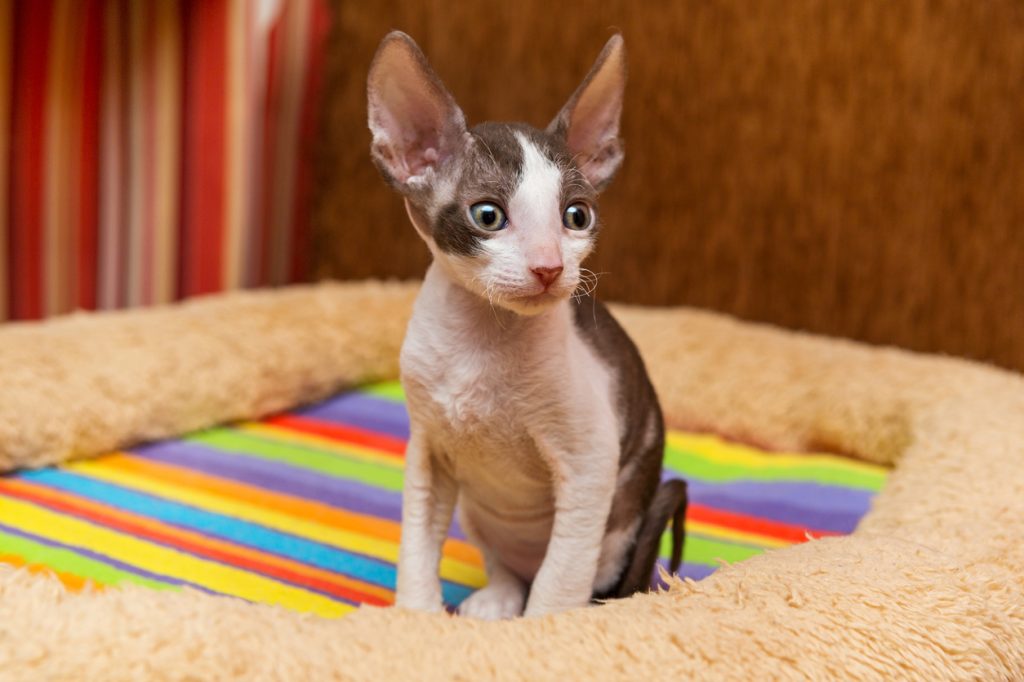
If you’re looking for a breed that’s small in stature and light on shedding, vets say to consider a Cornish Rex. However, these highly affectionate felines come with another type of built-in work.
“This is a breed with a silky curly coat. But despite being small—usually under nine pounds—these cats love to play and be around the action,” says Durano. “You’ll need plenty of places for them to climb and run.”
2
Devon Rex
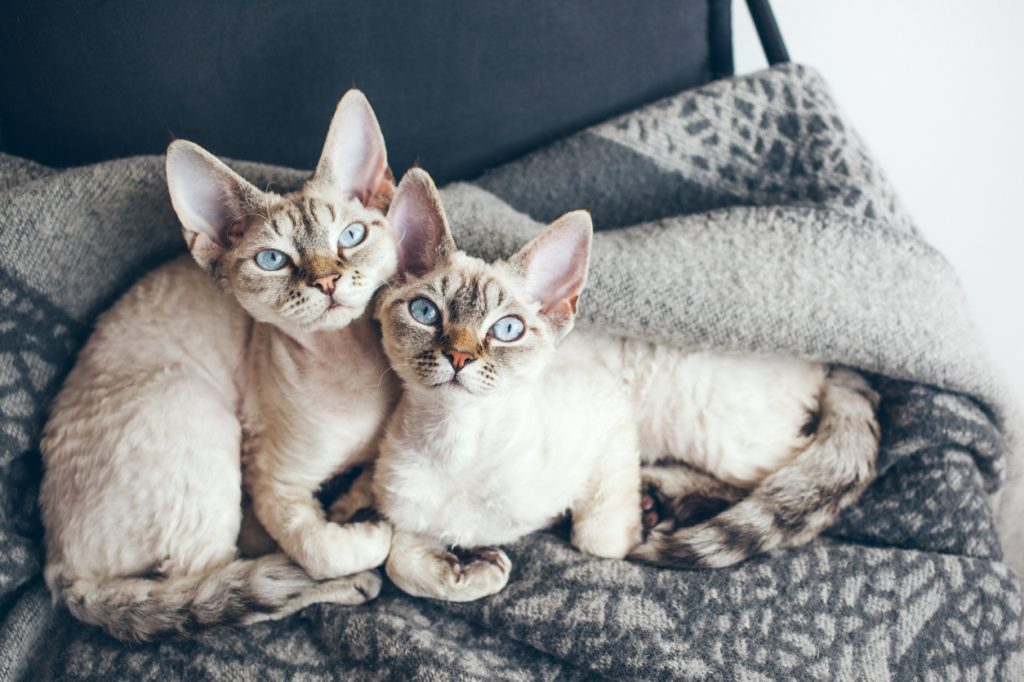
A similar option is the Devon Rex, which shares many characteristics with the last breed we discussed.
“Like Cornish Rex, these cats have short, curly coats with minimal shedding,” says Dwight Alleyne, DVM, veterinarian with JustAnswer. “Similarly, they are also known as very playful cats and therefore, they make great family pets.”
They even share a similar stature to the Cornish Rex, weighing around nine pounds or less. But there are a few slight physical differences between the two, as the Devon Rex typically has shorter legs and whiskers by comparison, according to Catster.
RELATED: 7 Red Flags That Your Pets Need to Be Separated, Veterinarians Warn.
3
Russian Blue
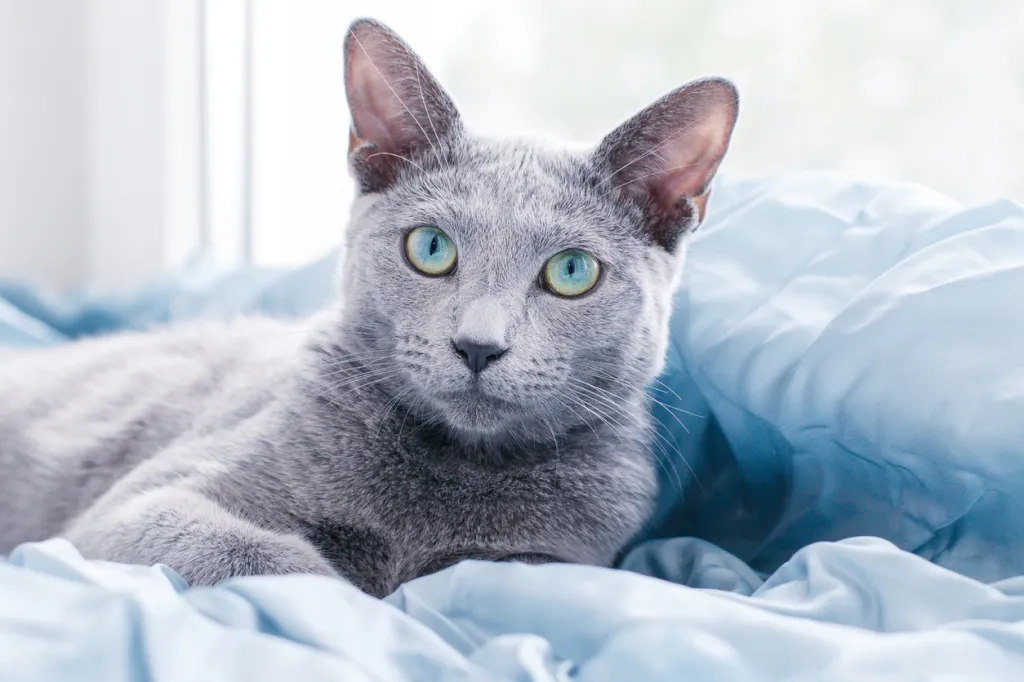
This breed gets its name from its coat, but it also stands out for its other strikingly beautiful physical features.
“Russian Blues have a dense, short coat that sheds less compared to many other breeds,” says Nita Vasudevan, DVM, veterinary contributor for Embrace Pet Insurance. “This also means they have low-maintenance grooming needs.”
According to PetMD, these cats are considered relatively rare in the U.S. and Canada. But the breed typically weighs between a manageable seven and 12 pounds and sports eyes that become dazzlingly green as they reach adulthood.
4
Bengal
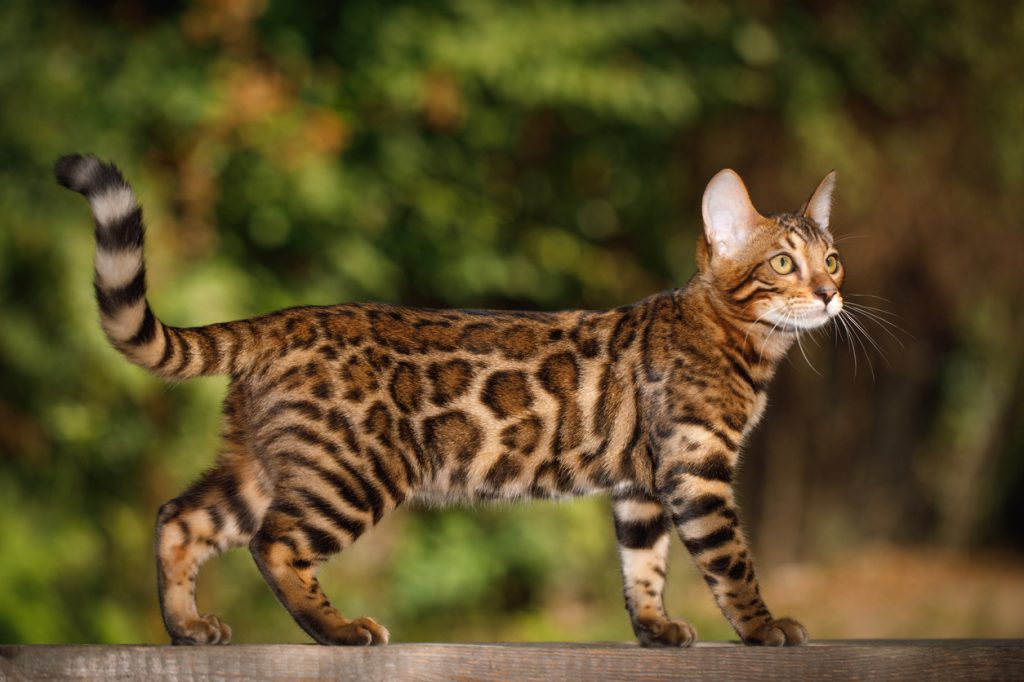
You’re certainly familiar with Bengal tigers and their striking checkered coats, but did you realize that there’s a much smaller house cat version that shares a striking resemblance to its more ferocious distant cousin?
“Bengals are known for their sleek, short coat and don’t require much grooming,” says Alleyne. “They shed infrequently and are also known for their active temperament.”
These spotted felines are typically friendly and affectionate by nature but can also grow slightly larger, reaching up to 15 pounds, per PetMD. However, they retain some of the wild instincts of their ancestors and aren’t great if you’re looking for the kind of cat you can carry or hold. Note also that they are illegal or restricted in some states.
5
Sphynx
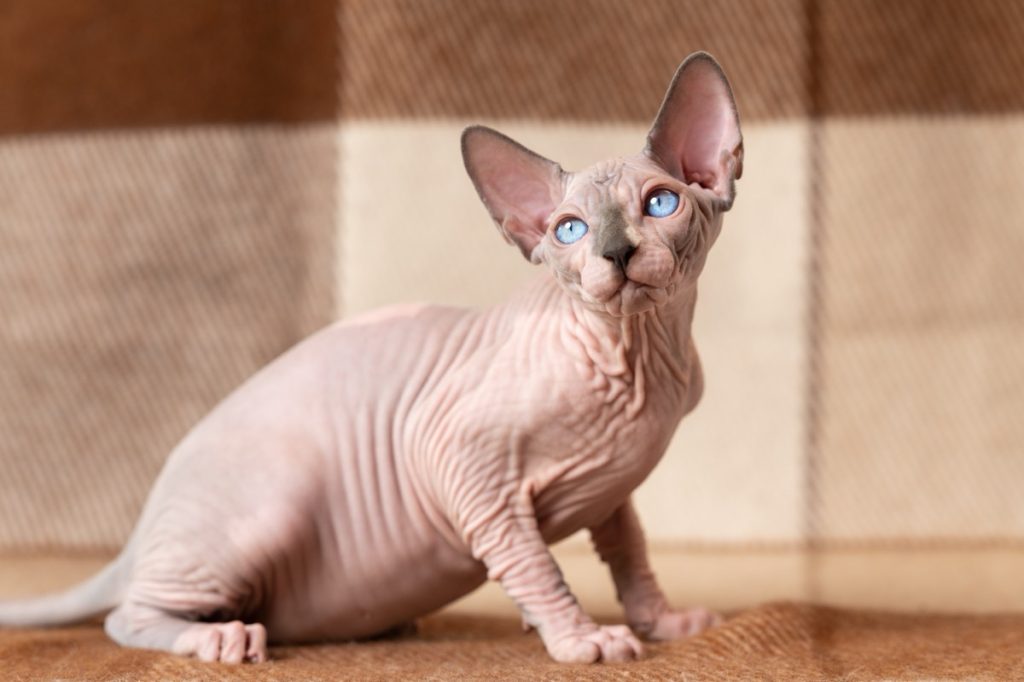
Arguably the most well-known of the little-to-no coat breeds, Sphynx cats’ appearance tends to dominate their reputation.
“This breed is usually very noticeable due to the fact that they are hairless,” says Durano.
However, he cautions against assuming they’re shy due to their lack of a coat. “The Sphynx is very social and will often vocally follow family members around the house,” he says. “They are playful, and because of this temperament, they do not do well being left alone for long periods of time.”
RELATED: 10 Most Beautiful Pet-Friendly Plants.
6
Balinese
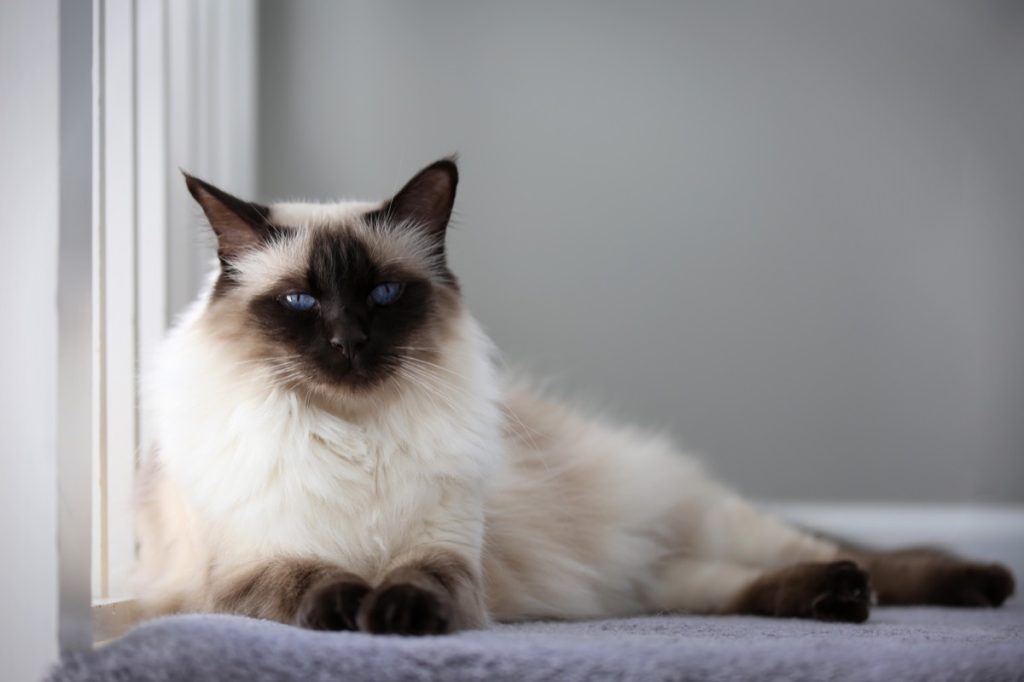
Looking for a playful and doting pet who loves to please its owner? Balinese are a beloved breed known for their stunning blue eyes and soft coat, which is less problematic than you might expect.
“These longhaired cats might seem surprising on this list, but their silky, single-coat sheds less than some short-haired breeds,” says Laurel Anderson, DMV, veterinary adviser to Pumpkin Pet Insurance. “However, regular brushing is essential to prevent matting.”
This breed also stands out for its long lifespan, which runs from 18 to 22 years, according to PetMD. However, like other affectionate cats, it doesn’t like to be left alone for too long, so keep that in mind before you bring one into your family.
7
Siamese
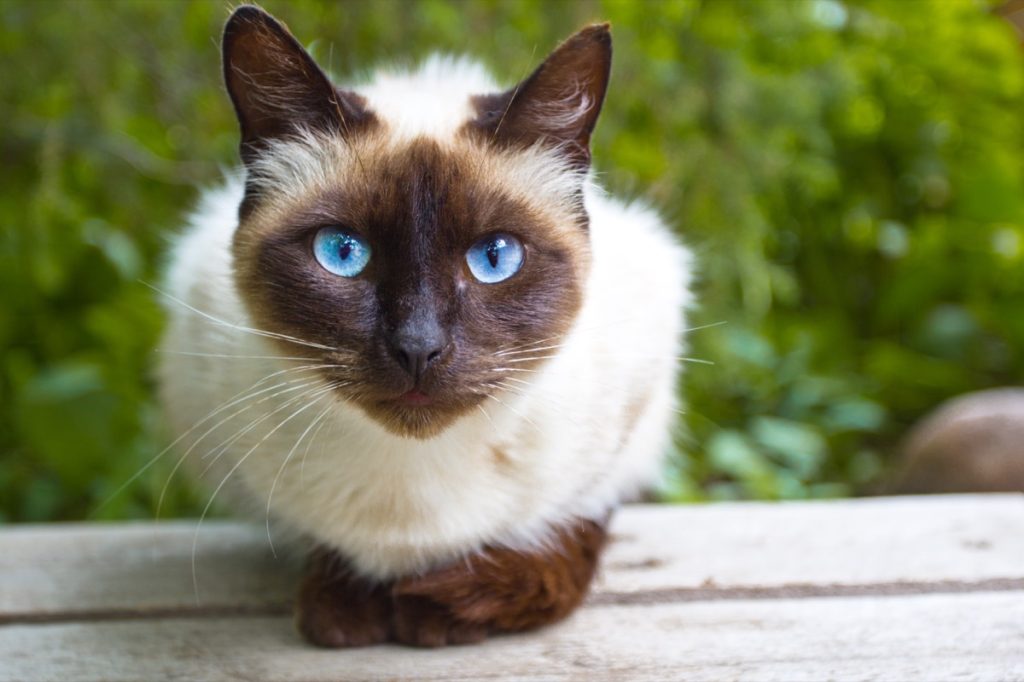
Like the idea of a Balinese with even less of a coat? According to Alleyne, Siamese cats are a short-haired version that is an equally friendly—and outspoken—option.
“Siamese cats have fur with a short, fine coat with minimal shedding,” he says. “They have a very social nature and are known for being very vocal.”
The super playful and intelligent breed also needs regular attention, but staying on top of their coat will pay off. “Regular brushing can help further reduce shedding,” says Anderson.
8
Peterbald
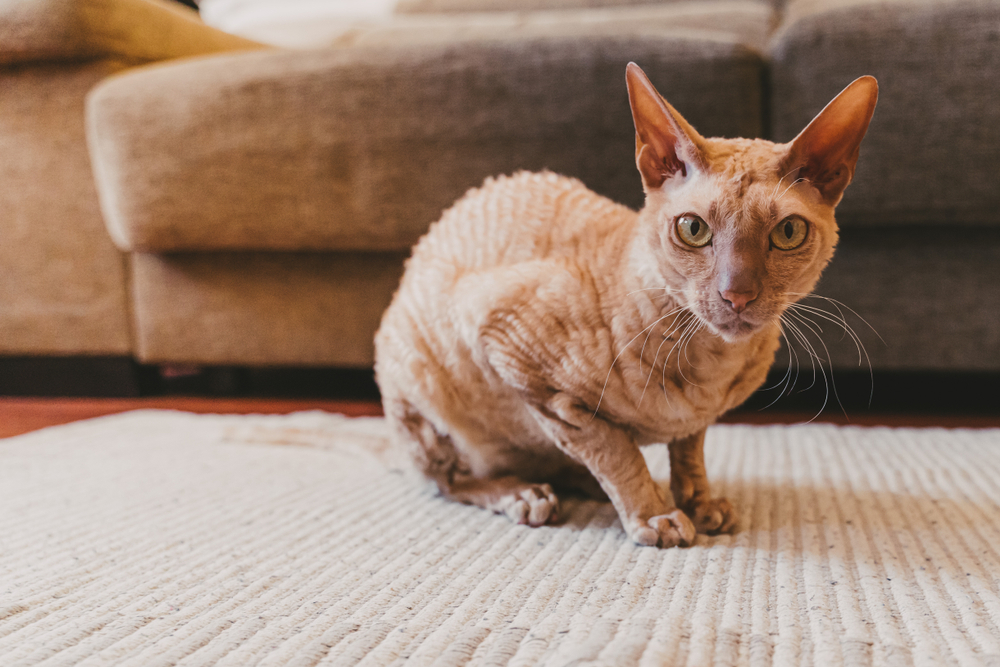
The Peterbald can run the gamut from being completely hairless to sporting a short coat, says Durano. They are another rarity in North America, but they make for great pets.
“This mostly hairless cat is very curious, intelligent, and an overall good family companion,” says Durano. “They are also very playful and do not do well being left alone. Be sure you have plenty of time and toys to keep them entertained.”